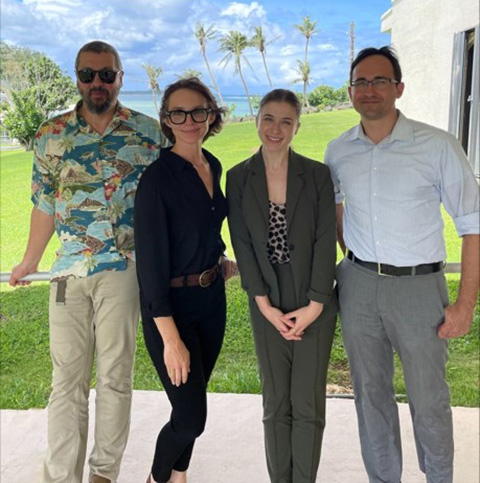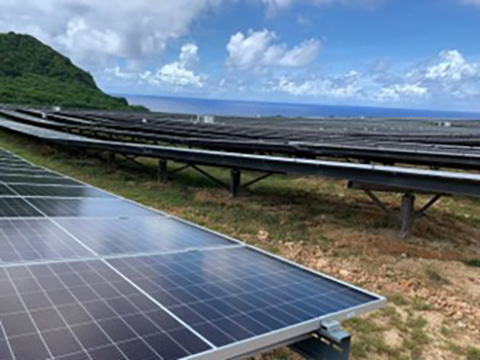Guam Utility Works With Sandia National Laboratories to Achieve 50% Renewable Energy by 2040
March 5, 2024 by Brooke Van Zandt
This blog post is part of NREL’s series of community spotlights for the Energy Transitions Initiative Partnership Project (ETIPP).
ETIPP is managed by NREL and draws on a network of national laboratories and regional partners organizations to provide technical assistance to island and remote communities to help improve their energy resilience.

Like many utilities, Guam Power Authority's (GPA’s) challenge is to balance affordability, reliability, resilience, modernization, and security in a transitioning energy landscape. GPA is working to achieve 50% renewable energy production by 2030, and by 2040 the utility aims to produce 100% of its energy from renewable sources without greenhouse gas emissions. GPA has needed to quantify changes associated with these targets to ensure the stakeholders have accurate, complete information.
These challenges and goals made GPA a good fit for ETIPP. Because ETIPP projects typically last 18 to 24 months, the organization crafted a focused project that would fit within ETIPP's timeline of support. That's why the program's scoping phase was such an important first step; after joining ETIPP in 2022, GPA created a targeted project with input from ETIPP's researchers at Sandia National Laboratories (SNL).
"The teams worked together to match [lab] expertise with specific [GPA] challenges and arrived at a capacity analysis project,” said Brooke Marshall Garcia, the SNL researcher leading the ETIPP work. “This is within the general categories GPA sought, but narrow and achievable within ETIPP's timeline and budget."

SNL researchers will perform analysis to quantify the impacts of various solar photovoltaic and energy storage configurations on a sample distribution system. A portion of the scope is dedicated to targeted stakeholder engagement so that use of the tools and dissemination of the analysis can have maximum impact.
"The technology transfer of lab-created tools to GPA will be useful, as well as the analysis results which we can apply to GPA’s Virtual Power Plant Program and other initiatives," said John Cruz, the assistant general manager of engineering and technical services at GPA. "This information could be helpful in informing policy to influence distributed energy adoption patterns and for anticipating necessary components and investments to maintain system integrity."

The project analysis will also be vital information for inclusion in local communication and outreach efforts.
"Improved communication mechanisms for ongoing collaboration with the Consolidated Commission on Utilities, the Public Utilities Commission, the governor and lieutenant governor, and other energy policy makers such that the future installations are fully informed and unintended consequences are avoided,” Cruz said. “Our hope is to achieve a better flow of information among stakeholders that persists long after this project is completed, which includes improved energy literacy and information flow with customers."
For more community spotlights and achievements, visit ETIPP’s 2023 Annual Report.
Share
